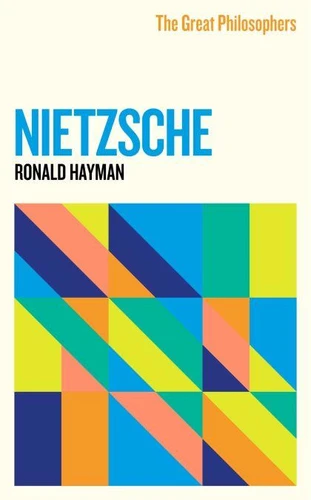The Great Philosophers: Nietzsche. Nietzsche
Par :Formats :
Disponible dans votre compte client Decitre ou Furet du Nord dès validation de votre commande. Le format ePub protégé est :
- Compatible avec une lecture sur My Vivlio (smartphone, tablette, ordinateur)
- Compatible avec une lecture sur liseuses Vivlio
- Pour les liseuses autres que Vivlio, vous devez utiliser le logiciel Adobe Digital Edition. Non compatible avec la lecture sur les liseuses Kindle, Remarkable et Sony
- Non compatible avec un achat hors France métropolitaine
 , qui est-ce ?
, qui est-ce ?Notre partenaire de plateforme de lecture numérique où vous retrouverez l'ensemble de vos ebooks gratuitement
Pour en savoir plus sur nos ebooks, consultez notre aide en ligne ici
- FormatePub
- ISBN978-1-78022-179-3
- EAN9781780221793
- Date de parution13/09/2011
- Protection num.Adobe DRM
- Infos supplémentairesepub
- ÉditeurWeidenfeld & Nicolson
Résumé
'God is dead', announced Nietzsche - before going on to abolish himself. Envious contemporaries of Nietzsche ridiculed him as a mad man - and yet they came closer than they knew in characterising a philosopher in whose thought ambivalence approximated to disintegration of the self. While the nineteenth century's coherent, consistent systems of certainty came crashing down ingloriously at the very first touch of the twentieth, Nietzsche's discourses survived.
He was more modern, it seemed, than the moderns. In this stimulating and provocative guide, Hayman reveals how Nietzsche's work is more contemporary and relevant than ever in a new postmodern age.
He was more modern, it seemed, than the moderns. In this stimulating and provocative guide, Hayman reveals how Nietzsche's work is more contemporary and relevant than ever in a new postmodern age.
'God is dead', announced Nietzsche - before going on to abolish himself. Envious contemporaries of Nietzsche ridiculed him as a mad man - and yet they came closer than they knew in characterising a philosopher in whose thought ambivalence approximated to disintegration of the self. While the nineteenth century's coherent, consistent systems of certainty came crashing down ingloriously at the very first touch of the twentieth, Nietzsche's discourses survived.
He was more modern, it seemed, than the moderns. In this stimulating and provocative guide, Hayman reveals how Nietzsche's work is more contemporary and relevant than ever in a new postmodern age.
He was more modern, it seemed, than the moderns. In this stimulating and provocative guide, Hayman reveals how Nietzsche's work is more contemporary and relevant than ever in a new postmodern age.



